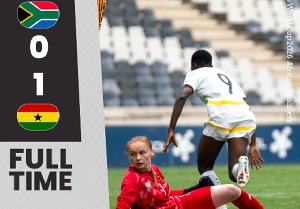Professor Haruna Yakubu, Vice-Chancellor of the University for Development Studies (UDS), has called on government and non-governmental organisations to use field reports of students to bring meaningful development to communities.
He said the reports, which were filed by students as part of the UDS’ Community Engagement Programme, were multidisciplinary and touched on every sphere of life of communities, and their implementation could address the development needs of the country.
Prof. Yakubu made the call when addressing the 15th Congregation of UDS in Tamale on Saturday where 2,631 students, who pursued graduate, undergraduate and diploma courses graduated.
Graduands were from the Graduate School, School of Medicine and Health Sciences, and Faculty of Agribusiness and Communications amongst others from its Tamale, Nyankpala and Navrongo campuses.
On Saturday, December 6, 2014, students of UDS’ Wa Campus, numbering 3,896, graduated bringing the total number of graduands at the 15th Congregation to 6,527.
The UDS’ Community Engagement Programme comprises the Third Trimester Field Practical Training and the Problem Based Learning, where students live in rural communities identifying their developmental potentials and challenges and developing intervention strategies to enhance those development potentials of the communities. Prof Yakubu said: “This particular batch of students graduating today have lived and worked in communities in the Brong Ahafo Region and have filed field reports on the development needs of these communities lodged in the university.”
He, therefore, appealed to NGOs working to bring development to individuals, groups and communities to join hands with UDS through the community engagement programme to address the development needs of the country.
Prof Yakubu announced that the UDS and the Groningen University of the Netherlands would soon begin a research project focusing on “Society and Change in Northern Ghana”.
He said the purpose of this research was to develop and augment the academic knowledge about the history of northern Ghana in the context of long term processes of change and socio-economic and political inclusion and exclusion within Ghana and the wider region.
He said: “It is my view that this research will provide the opportunity for UDS to begin the processes of documenting the histories and cultures of the ethnic groups in northern Ghana.”
Prof Yakubu announced that UDS had entered into an agreement with the Galilee International Management Institute (GIMI), based in Israel, to undertake a joint medical programme to provide quality teaching and learning in the area of medical training to students within the West Africa sub-region and beyond.
He said the joint medical programme, which would begin from the next academic year, aimed at training the much needed doctors and other medical personnel for the country, the continent and the international community.
Mr Samuel Okudzeto Ablakwa, Deputy Minister in-charge of Tertiary Education, gave the assurance that the Government would continue to improve infrastructure at tertiary institutions to ensure increased enrollment.
Mr Okudzeto Ablakwa said Government, therefore, had decided that until on-going Ghana Education Trust Fund (GETFund) projects at the various tertiary institutions were completed, no new ones would be initiated.
He said the Government would continue to engage lecturers on the establishment of the National Research Fund and appealed to them to join hands with it to ensure the successful take off of the fund.
Regional News of Tuesday, 16 December 2014
Source: GNA












